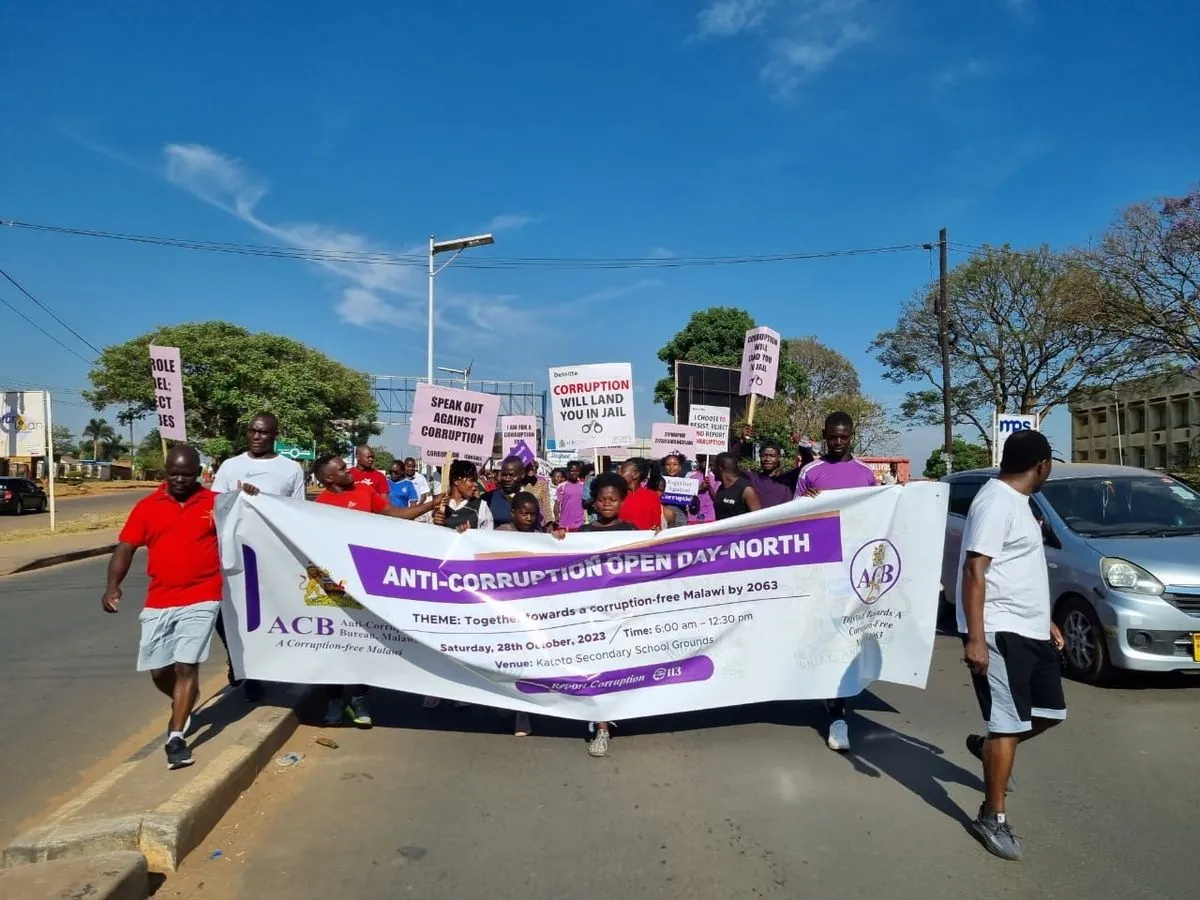Malawi's Anti-Corruption Efforts Face Setbacks as High-Profile Cases Dropped
Malawi's fight against corruption faces challenges as high-profile cases, including that of the late Vice President Chilima, are dropped. The situation raises questions about the country's commitment to transparency and accountability.

Malawi, known as the "Warm Heart of Africa", is grappling with persistent corruption issues that threaten its development and public trust. Recent events have cast a shadow over the nation's anti-corruption efforts, particularly the decision to drop high-profile cases.
In a significant turn of events, the High Court discontinued the corruption case against Saulos Chilima, the former Vice President, on May 6, 2024. This decision came just weeks before Chilima and nine others were declared dead in a military aircraft incident on June 11, 2024. The case's dismissal, citing national security interests, has raised eyebrows and fueled speculation.
The allegations against Chilima involved assisting a U.K.-based Malawian businessman in securing government contracts. The case had been contentious, with the country's anti-corruption body and Chilima's lawyers seeking disclosures from military authorities. In October 2023, the High Court in Lilongwe had summoned army generals to explain their reluctance in releasing documents related to the case.

President Lazarus Chakwera initially took a strong stance against corruption in June 2022, stripping Chilima of his duties and dismissing or suspending several high-profile officials. However, the subsequent dropping of charges against Chilima and others, including former President Bakili Muluzi, has sparked skepticism about the government's commitment to fighting corruption.
Malawi's anti-corruption landscape is complicated by a web of vested interests and power dynamics. The country, ranking 174th out of 189 in the Human Development Index, faces significant challenges in its development efforts. With a young population (median age of 17) and an economy heavily dependent on agriculture, the impact of corruption is particularly severe.
"It's extremely important that that person is brought before the courts of law because otherwise, we are just paying lip service to the fight against corruption."
The dropping of high-profile cases has led to accusations of selective justice. Critics argue that while ordinary citizens bear the brunt of anti-corruption measures, high-ranking officials often evade accountability. This perception erodes public trust and undermines the credibility of anti-corruption initiatives.
The situation is further complicated by institutional weaknesses and political motivations. Poor working relations between the Anti-Corruption Bureau (ACB) and the Director of Public Prosecutions (DPP) highlight the challenges in coordinating anti-corruption efforts. The ACB reportedly learned about the decision to drop Chilima's charges through the media, indicating a lack of communication between key institutions.
Malawi's fight against corruption requires a multi-faceted approach involving legal, political, and citizen action. Civil society organizations play a crucial role in holding leaders accountable and fostering a culture of transparency. International support, through financial and technical assistance, can also bolster local institutions dedicated to combating corruption.
As Malawi navigates these challenges, it must strive to uphold the principles of justice and accountability. Only through unwavering commitment to transparency and equal application of the law can the country hope to build a more prosperous future for all its citizens.


































